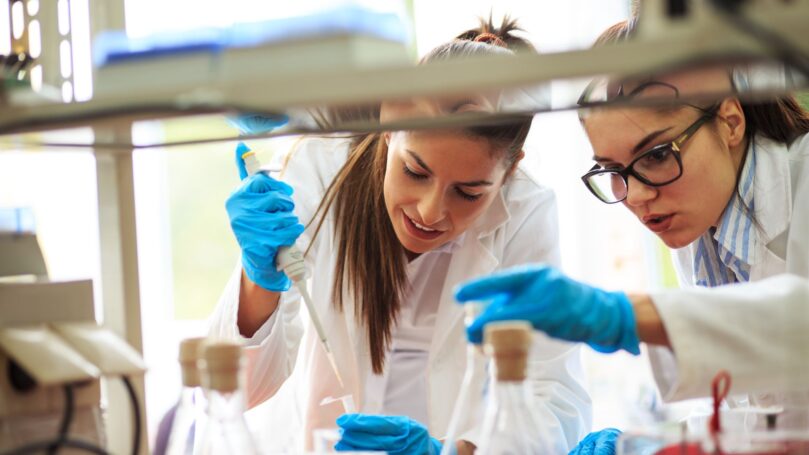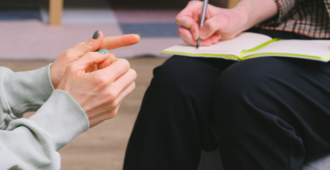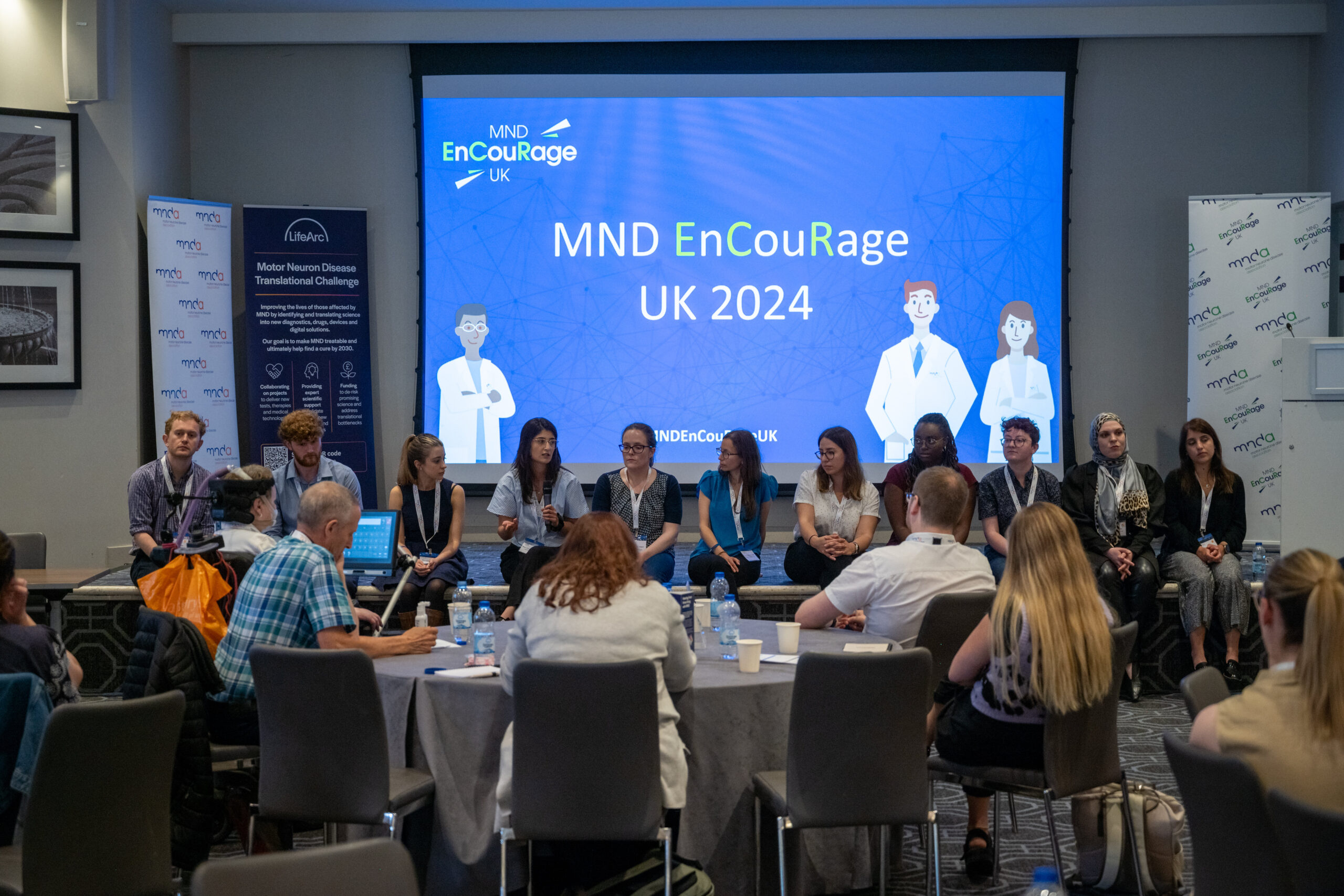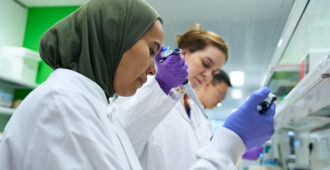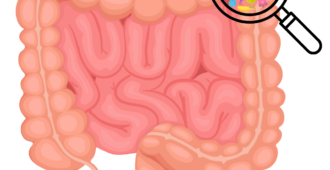8 years ago, the International Day of Women and Girls in Science was created to improve gender equality in science and recognise the invaluable role women play. Each year the world comes together to celebrate inspirational women of the past, present, and future. While women continue to be under-represented in science globally1, the conversation of gender equality in science is much louder than it was.
The MND Association has a track record of funding talented women who have made vital contributions in furthering our understanding of MND. This includes through our PhD studentships, where over 60% of our current PhD students are women. These studentships provide the essential experience and development needed to pursue a career in MND research.
To celebrate the day, we want to highlight some exceptional female MND Association funded PhD students. Over the next two blogs we’ll find out more about their journey to becoming scientists and delve a bit deeper into the research they are working on.
Meet the researchers

Sara Tacconelli is a PhD student at King’s College London. Sara is investigating a protein called FUS, which can be faulty in some people living with MND. Her research focuses on understanding the role FUS has at the synapse, which is where information flows from one neurone to another. It is hoped this will increase our understanding of why particular biological mechanisms stop working during the disease and potentially lead to new targets for therapeutic intervention.

Natalie Pye is a PhD student at University of Sheffield. Natalie is investigating a mutation in the NEK1 gene which is found in some people living with MND. She aims to find out why this mutation causes MND and understand more about the processes it disrupts. This knowledge could then be used to investigate ways to correct the damage and reveal potential targets for future treatments.
What inspired you to pursue a career in science?
Sara: I have always had a natural curiosity for science. I am fascinated by how the body works, and how powerful and complex our brain is. This is, generally speaking, why I chose to study neuroscience at university, and how I ended up dedicating my PhD to advanced neurodegeneration research. Why MND research? I was pushed by my heart. I chose to study the disease in memory of a special person. I know how devastating MND is, and I know how much suffering and frustration it brings. So, I promised myself I would dedicate my life to studying and better understanding it.
Natalie: I’ve always been fascinated by the brain and knew from a young age that I wanted to learn more about how it all works, leading me to study neuroscience at university. My main passion is understanding what happens to our brains to cause disease, and how we can use our knowledge of what goes wrong to help create treatments for symptoms and find cures for currently incurable diseases. I became interested in researching MND after following Rob Burrow’s story, learning about how little was known about the disease and lack of treatments available. I decided to pursue a PhD researching MND, in hopes to help us better understand the disease and hopefully my research will one day help find a cure!
What has your experience of being a woman in science been like?
Natalie: I personally have had a very positive experience being a woman in science, as from early on in my undergraduate degree I was tutored and mentored by women in science, who gave me an honest perspective about the challenges a career in science could bring. One challenge that my mentors faced and which I expect I may face in the future is that, as like many other professions, there is a higher proportion of men in higher positions than women in science, meaning that I may need to work harder to stand out and gain these prestigious jobs. However, there is now lots of opportunities and incentives to help women in science, and it’s very encouraging to see more women becoming professors!
Sara: I feel like I have been lucky. I have had the privilege of being surrounded by strong minded and highly determined women that never underestimated me because of my gender. Unfortunately, I am aware that is not everyone’s experience. Some people still believe in a certain stereotype of women working in science. I do not think this prejudice reflects reality, and I think it has a big impact on young girls that are considering a career in STEM. For myself and my colleagues, we are just normal people, who happen to be really passionate about scientific research.
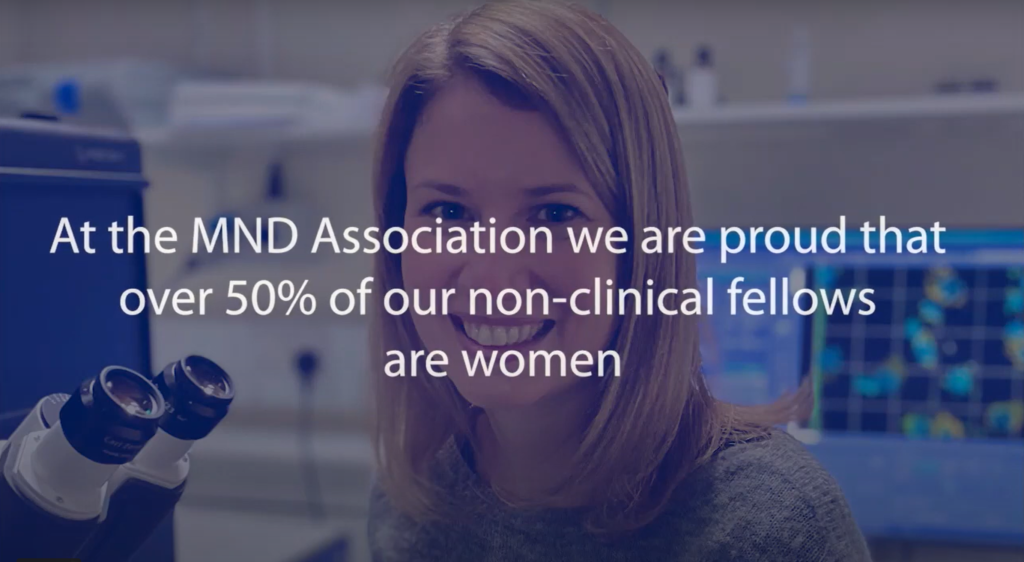
RELATED TOPIC
Web Story | 13 February 2023
Celebrating International Women and Girls in Science Day
What is the best part of being a scientist?
Sara: I love the idea of having the possibility of observing a new phenomenon, no matter how microscopic, that no one has ever looked at before. Research is absolutely fundamental to developing and improving our understanding as a global society, so getting to be a part of the research is rewarding in itself. Also, scientific research is an international effort, with different teams working towards shared goals located in different parts of the world. This gives scientist an amazing possibility for travelling to new places and meeting different people sharing similar interests.
Natalie: My favourite part about being a scientist is having the potential to find out things that no one else knows yet, and then being able to share that research with the world, with hope that it will help progress knowledge and treatments for currently incurable diseases.
What advice would you give to the future generations of female scientists?
Natalie: I would highly recommend finding a mentor who can help advise and guide you on how to be successful in the world of science and help you with problems outside of your work. I would also suggest you find what you are passionate about researching as it’s so important to love the work that you do!
Sara: Science is about testing theories and making decisions based on evidence. You need to understand that your gender does not prevent you from being a good scientist. Be brave and never let anyone tell you science is not for girls. Find the right role models. Believe that you can be whoever you want to be, whether that’s a doctor, a scientist, a dancer, an artist, or an astronaut. Never allow anyone to convince you that you need to fit into a certain stereotype to pursue the career path you want.
We would like to thank Natalie and Sara for being involved in this blog.
References:

